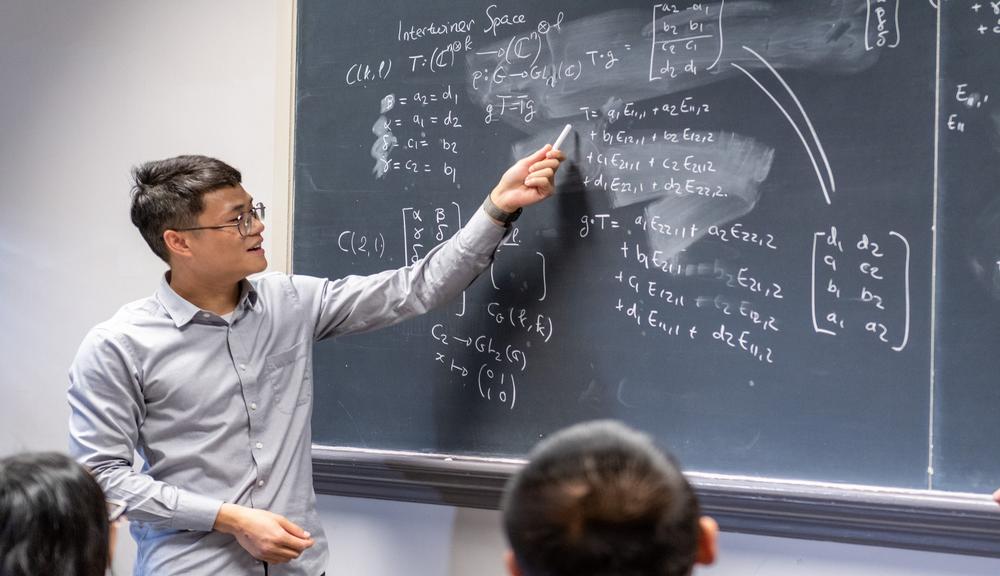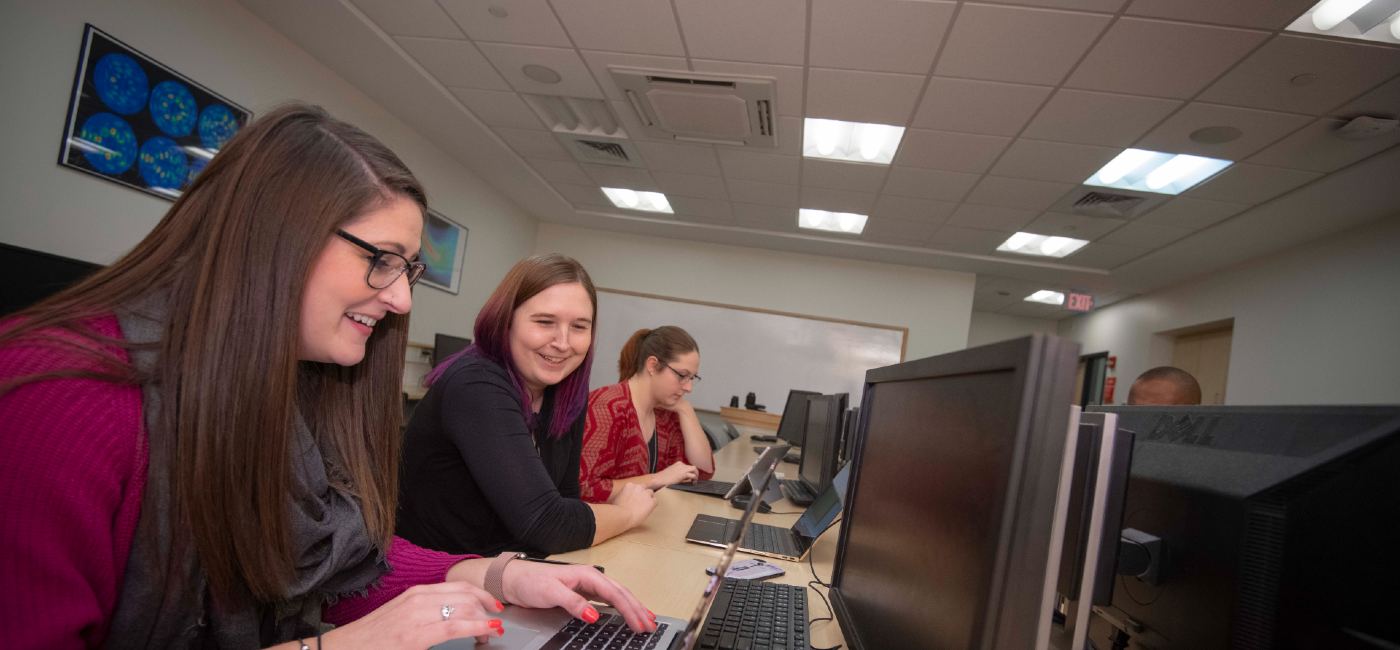Merging coursework and project work in mathematics and learning sciences, WPI’s Master of Science in Mathematics for Educators (MMED) enables classroom teachers to expand their mathematical expertise while creating more targeted and engaging learning environments for their students.
The program is designed for current middle school, high school, and community college mathematics educators seeking to enhance the content and implementation of their mathematics courses to engage students and give them a more effective learning experience. The impact is immediate—course content can be applied in the student’s classroom right away.
Through coursework in advanced math concepts, learning sciences, and a capstone project, students will learn how technology can be used to mirror the way children learn and process information. A multidisciplinary pedagogical framework allows educators to give all types of learners a new path to explore and learn mathematical concepts.
Developed with practicing educators in mind, the degree program offers professional licensure in Massachusetts and all classes meet in the late afternoon and evening. Most courses are available online.

Admission Process
We seek to make the transition to graduate work as easy as possible for you. Application to the program is simple; it includes an application form, transcript(s), and three letters of reference. You do not need to submit GRE scores. You may apply anytime during the year and start during any semester.
Curriculum
The MMED program entails 30 credit hours of work: three courses in learning sciences (9 credits), math content courses (15 credits), and a culminating self-designed project (6 credits). All content courses are based on a three-semester year. Assessment and evaluation courses are offered during two semesters per year.
Degree Requirements
Learning Sciences/Core Assessment and Evaluation Theory Courses
To fulfill the 9 credits in learning sciences/assessment and evaluation, participants must take a minimum of one course from each of the three sections below. Full course descriptions are listed under the appropriate department in the course catalog online.
Learning Theory, Environments, and Cognition Courses
PSY/SEME 501 – Foundations of the Learning Sciences (3 credits)
PSY/SEME 502 – Educational Learning Environments (3 credits)
PSY/SEME 504 – Meta-cognition, Motivation, and Affect (3 credits)
Qualitative and Quantitative Analysis and Assessment Courses
MME/SEME 524 – Probability, Statistics, and Data Analysis I (2 credits)
MME/SEME 525 – Probability, Statistics, and Data Analysis II (2 credits)
CS/SEME 565 – User Modeling (3 credit)
CS/SEME 566 – Graphical Models for Reasoning Under Uncertainty (3 credits)
CS/SEME 567 – Empirical Methods for Human-Centered Computing (3 credits)
Current Education and Education Research Issues Courses
PSY/SEME 503 – Research Methods for the Learning Sciences (3 credits)
CS/SEME 568 – Artificial Intelligence for Adaptive Educational Technology (3 credits)
Math Content Courses
Participants must take a total of 15 credits in the math department. Courses offered include but are not limited to:
MME 518 – Geometrical Concepts
MME 522 – Applications of Calculus (2 credits)
MME 523 – Analysis with Applications (2 credits)
MME 524-5 – Probability, Statistics and Data Analysis I, II (2 credits each)*
MME 526-527 – Linear Models I, II (2 credits each)
MME 528 – Mathematical Modeling (2 credits)
MME 529 – Numbers, Polynomials and Algebraic Structures (2 credits)
MME 531 – Discrete Mathematics
*One of these two can be double-counted toward the assessment and evaluation requirement
Similar Majors
Research
The culminating self-designed project helps you merge theory and practice by applying research in your field to your classroom lessons. The project is not a thesis nor an exam, but instead an activity designed to help you in the classroom. You will work closely with an advisor to create a project, implement it, and then assess and evaluate student learning.
Graduate Studies Series
Team members from Graduate & Professional Studies host quick and convenient webinars designed to highlight popular topics when starting grad school. Take a deep dive into specific areas of interest such as how to secure funding, how to ace your application, an overview of student services, and more!
Refer a Friend
Do you have a friend, colleague, or family member who might be interested in Worcester Polytechnic Institute’s (WPI) graduate programs? Click below to tell them about our programs.

